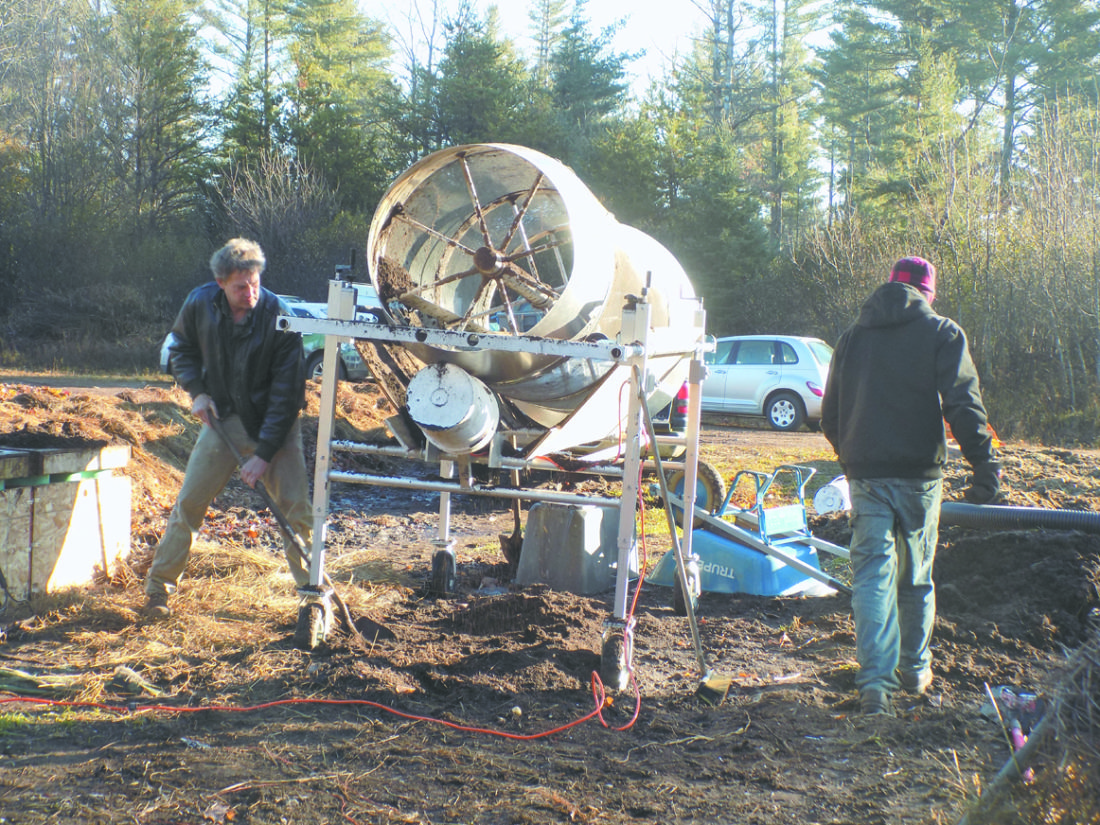Partridge Creek Farm is perfecting vermicomposting

ISHPEMING — Grow a carrot with vermicompost mixed in the soil, and grow one without it. See which one grows better.
Partridge Creek Farm now is offering vermicompost — created when worms are mixed with food scraps and other materials — to the public for use in gardens.
Partridge Creek is an educational farm focused on improving local access to fresh produce, building a healthy community and promoting education on sustainable food systems.
Vermicompost is an important component of this mission.
“It’s going to be part of our sustainability,” said Dan Perkins, director of Partridge Creek Farm.
It’s anticipated the operation will grow.
“We expect within a year and a half to be producing $100,000 worth of worm castings,” Perkins said.
Worm castings are made when worms eat through compost and create waste. This waste is a good soil enricher.
Large heaps using compost from local schools and restaurants are being built behind his company, Perkins Construction, on 22 acres at 200 Washington St. in Ishpeming.
“The first rounds are getting done,” Perkins said. “We’re sifting them right now.
“It’s quite a process, building worm castings.”
Vermicomposting, he said, starts with organic materials such as horse manure and hay, with food compost added next.
Then come the worms, but not just any worms.
“You have to introduce red wigglers,” Perkins said.
According to HowStuffWorks.com, red wigglers are the best compost worms because unlike nightcrawlers, they don’t burrow and live well in close, highly populated conditions.
Perkins called a vermicomposting pile a mix of “lasagna layers.”
“You have to have the right mix to get everything to work properly,” Perkins said.
It’s also not necessarily cheap.
Perkins said the farm uses a $5,000 sifting machine that removes the worm castings and worms, after which the vermicompost is bagged.
Aaren Joki of Ely Township runs Metsami Creations LLC, which sells items such as rustic furniture and woodwork. Joki also is a subcontractor for Partridge Creek Farm.
Perkins called it a great relationship.
“We provide space, equipment, volunteers,” Perkins said. “He runs the show. He takes a percentage of the sales, and it’s building a good business.”
Joki drives a truck to Marquette three days a week and picks up kitchen waste from restaurants, breweries and Northern Michigan University. That waste is mixed with horse manure to make a row that’s blended with paper and cardboard.
It’s not a swift process either. Joki said that after worms are added, a row sits for nine months. Then it has to be shoveled and sifted.
Perkins said 30-pound bags of vermicompost now are available at the farm for $20 each, with discount rates for bulk purchases.
Joki has a longstanding interest in vermicomposting.
“It’s a little better than conventional compost, because conventional compost, after it heats up, it’s kind of chunky and the nutrients haven’t quite stabilized,” Joki said.
However, when worms eat the compost, the particles becomes smaller after the “hot-composting” period.
“It’s a finer-grade product,” Joki said. “The worms stabilize all the nutrients so it doesn’t wash away.”
Because of their eggshells, worm castings provide a lot of calcium that helps the plants pick up the phosphorus and potassium, he said, with the Partridge Creek vermicompost composed of 2 percent calcium.
So, worms are key in the process. In fact, Joki noted “vermi” means “worm” in Latin.
Gardeners could make regular compost in as little as two weeks, he pointed out, but that could be problematic.
“You can do it really, but it comes out kind of chunky,” Joki said. “You have to be careful. If you’re making it really quick, whoever’s doing it has to do a good job or else it could damage your plants.”
With vermicomposting, there’s no worry about plant damage.
“When you put it on, it just builds this network that moves the nutrients around,” Perkins said.
Joki added: “It’s a living thing.”
Although vermicomposting is important environmentally and helps people grow better fruits and vegetables, there still is the financial aspect, at least for Partridge Creek Farm, whose main office is at 112 S. Main St. in Ishpeming.
“Every healthy nonprofit will provide at least 50 percent of its income from the sales of its good or services,” Perkins said. “We have to get there.”
He acknowledged Partridge Creek operates programs that don’t generate money, such as building gardens in downtown Ishpeming, working with the Great Lakes Recovery Centers and conducting its farm-to-school program.
So, the vermicomposting operation is important for Partridge Creek in that it can be a moneymaker by providing a product for local farmers, medicinal marijuana growers, home gardeners and others.
“It’s the best natural fertilizer you can buy without chemicals,” Perkins said.
To help the vermicompost operation, Joki is asking community members to bring their leaves to the farm at 200 Washington St. Those leaves, he said, will provide insulation to keep the compost from freezing, plus they add carbon.
For more information, visit partridgecreekfarm.org or metsamicreations.com.
Christie Bleck can be reached at 906-228-2500, ext. 250. Her email address is cbleck@miningjournal.net.




